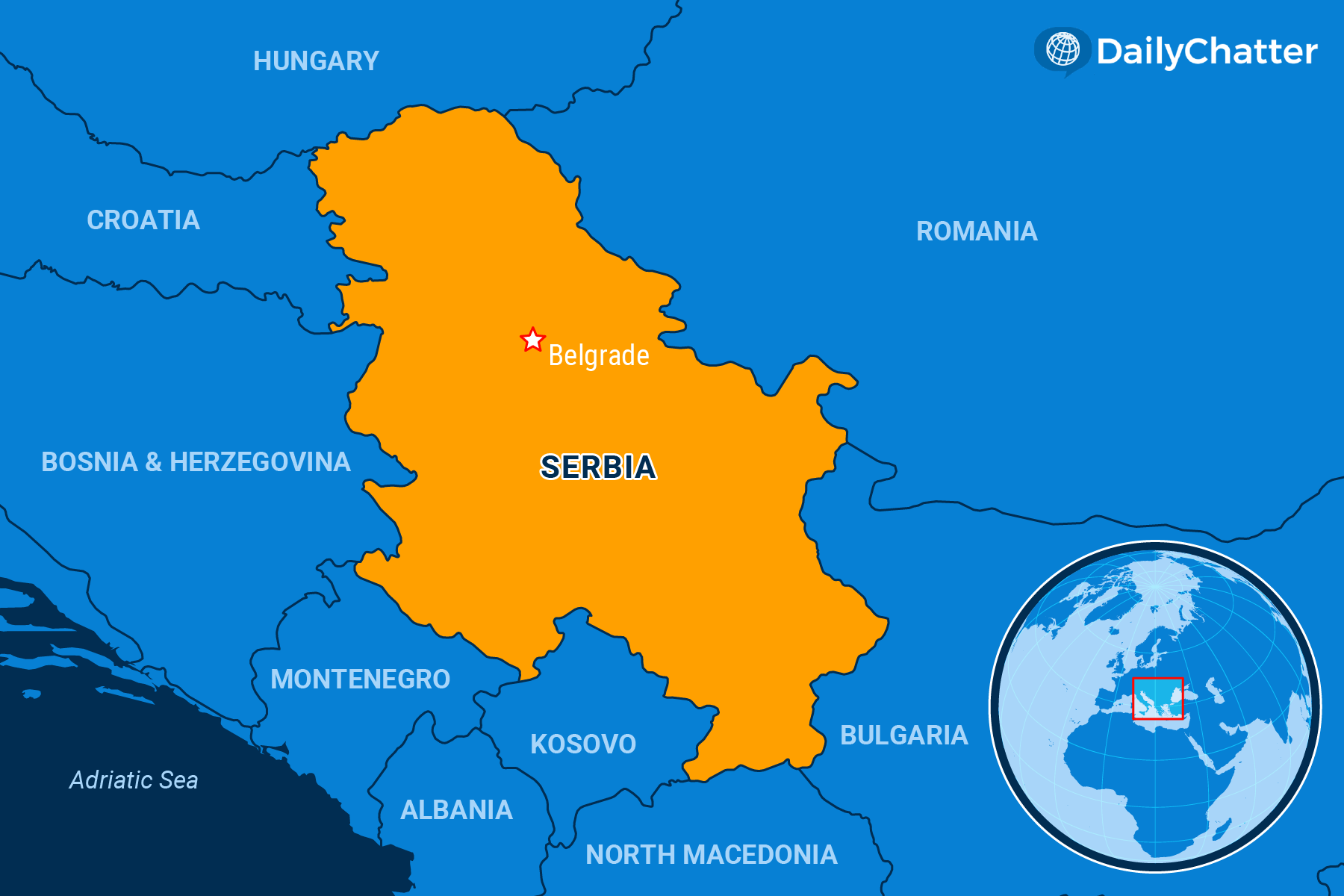NEED TO KNOW
Mining Discontent
SERBIA

Lithium is a crucial component in the batteries that power electric vehicles. But many Serbs don’t think that makes the shiny metal green.
That’s why thousands of protesters took to the streets of the Serbian capital of Belgrade recently to call on politicians to enforce the Balkan country’s environmental regulations. The trigger for the demonstrations was Anglo-Australian mining giant Rio Tinto’s proposed $2.4 billion lithium mine.
Serbia is one of the most polluted countries in Europe, according to Euronews. Around 50 people die per day from air pollution. In the village of Radinac, for example, emissions from a Chinese-owned steel mill cover homes in thick red dust, reported Reuters. In the past 10 years, cancer rates have quadrupled.
The proposed Jadar lithium mine in the countryside near the Bosnia-Herzegovina border is especially galling for Serbs.
In addition to more than 2,000 construction jobs, the mine could employ 1,000 people and produce batteries that could power as many as one million electric cars per year, wrote a Rio Tinto press release. The company has yet to produce an environmental impact statement, however, yet still has plans to begin excavating next year and produce lithium in five years.
[holidaypromo]
Critics of Rio Tinto and the government see collusion between the two, Balkan Insight wrote.
Al Jazeera, for instance, noted that officials have enacted a new law that would allow the government to expropriate land with only eight days’ notice and make it harder for voter referendums to stop projects, paving the way for the company to take over land despite the potential environmental hazards.
Rio Tinto would relocate around 50 households and purchase hundreds of other parcels, forever changing a remote corner of the country. Locals foresee a way of life ending with the support of their politicians. “I still have a house and a garden…living in the countryside and not having land – it’s like someone cutting off your arms and legs,” Zlatko Kokanovic told Radio Free Europe. “You can’t do anything.”
President Aleksandar Vucic, meanwhile, views the mine as a vital step toward improving Serbia’s economy. As Bloomberg explained, he recently imposed price controls on pasteurized milk, bread, pork legs, sugar and sunflower oil amid rising inflation. While Vucic is forecast to win reelection in April, the measures appear designed to shore up his support.
The mine will comprise around one percent of Serbia’s gross domestic product when it is up and running, claimed University of Melbourne researchers writing in the Conversation. That number reflects the utility of lithium. But history shows that lithium mines can harm ecosystems and ruin rural communities, too.
It’s a balance that Serbian politicians and voters will need to find somehow.
To read the full edition and support independent journalism, join our community of informed readers and subscribe today!
